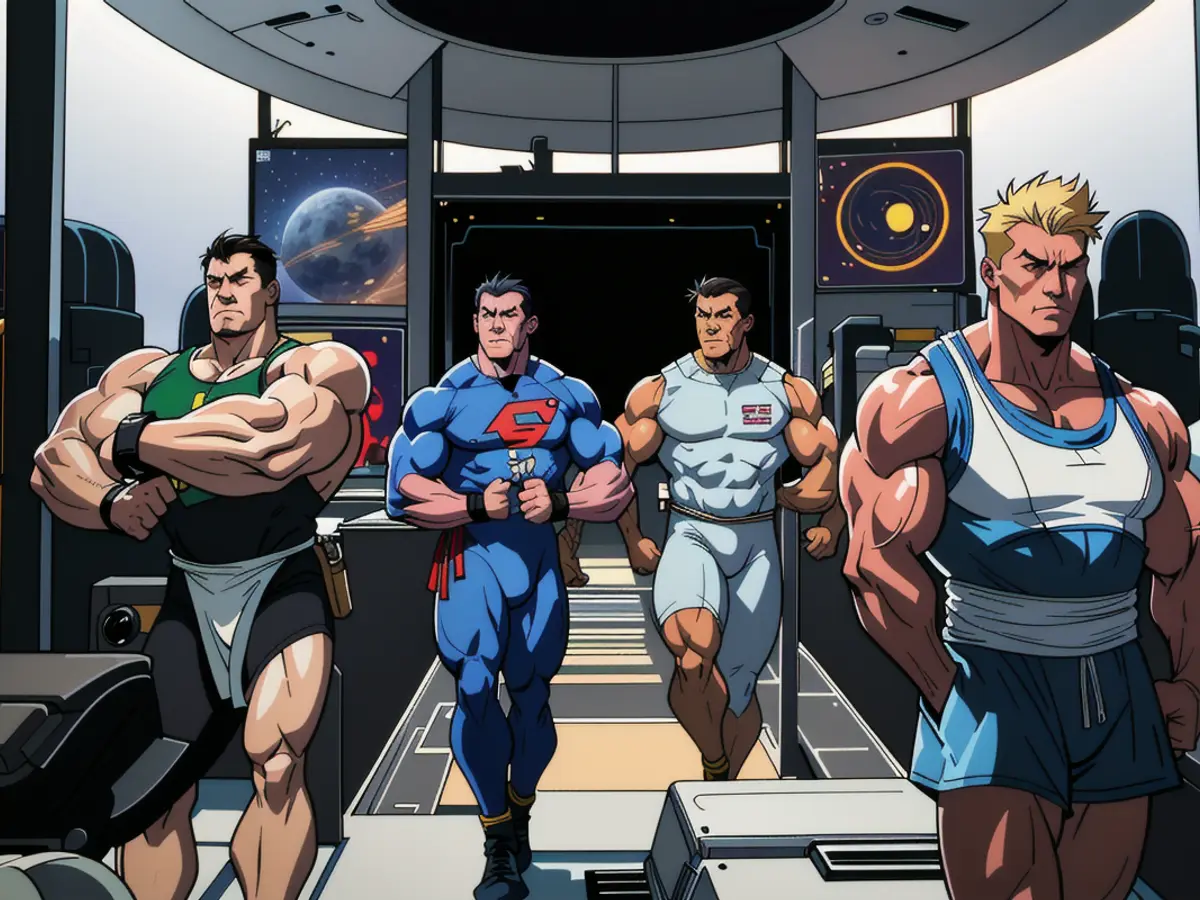NASA Astronauts Undergo Medical Attention Post-Splashdown in Unusual Occurrence
After returning from a nearly eight-month stretch in space aboard a SpaceX Crew Dragon, the Crew-8 astronauts underwent medical examinations at a hospital in Florida. One of the astronauts was required to spend the night due to an unnamed medical concern.
NASA's SpaceX Crew-8 mission landed at 3:29 a.m. ET on a Friday off Pensacola, Florida, following their stay on the International Space Station (ISS). The crew returned to Earth on a SpaceX Dragon spacecraft, which completed a normal re-entry and landing, as reported by NASA. Instead of being transported to NASA's Johnson Space Center in Houston, the four-person team was taken collectively to Ascension Sacred Heart Pensacola hospital in Florida for medical tests.
According to NASA's blog update, the crew exited the SpaceX Dragon spacecraft and moved to a recovery ship for standard post-flight medical assessments. All crew members were transferred to the hospital for additional precautionary reasons. Three of the astronauts were released from the hospital, while one unnamed astronaut remained for an overnight stay due to a medical problem. NASA chose not to divulge the astronaut's identity or medical details, maintaining their privacy.
Upon their release, the astronaut was permitted to rejoin the Johnson Space Center team for follow-up post-flight reconditioning. NASA confirmed that the astronaut was in good health. It remains unclear whether the medical problem arose from the space journey itself or the trip back to Earth, or if it was unrelated to their time in space. Nevertheless, the fact that all four crew members were taken for extra medical tests suggests that the issue might have been related to their return to Earth.
Crew-8 consisted of NASA astronauts Matthew Dominick, Michael Barratt, and Jeanette Epps, alongside Roscosmos cosmonaut Alexander Grebenkin. The team spent a combined 232 days on the ISS, traveling a whopping 99 million miles and completing 3,760 orbits around Earth while carrying out scientific research, as per NASA.
NASA's Crew-8 launched to the ISS on March 4, but their planned return was postponed for several weeks due to hurricane Milton. As a result, NASA had to abandon an undocking attempt on October 7. The crew was initially scheduled to return in mid-August, but NASA prolonged the mission to keep the Dragon spacecraft attached to the ISS in case of an emergency for Starliner's stranded astronauts.
Boeing's spacecraft transported astronauts Butch Wilmore and Suni Williams in June, but an empty Starliner returned to Earth in September, leaving them behind due to its unsuitability to take them back to Earth. In the event of an emergency on the ISS, these two astronauts would have required additional space on the Dragon spacecraft to shelter in place.
The delays in the crew's return extended their stay in space beyond the planned six months to nearly eight months. Space is known to be a harsh environment that affects human physiology, causing issues with bone and muscle density, vision, and increased susceptibility to infections on the ISS. More study is needed on astronaut health and strategies to alleviate space's negative impact on the human body prior to any long-journey to Mars.
The astronauts' extended stay in space highlighted the importance of ongoing research in space science and technology for understanding and mitigating the effects of space on human health. In the future, advancements in this field could pave the way for longer missions, such as journeys to Mars.
NASA's Crew-8 mission, which involved astronauts conducting scientific research in space, underscores the role of technology in pushing the boundaries of space science and exploring the future of space travel.




